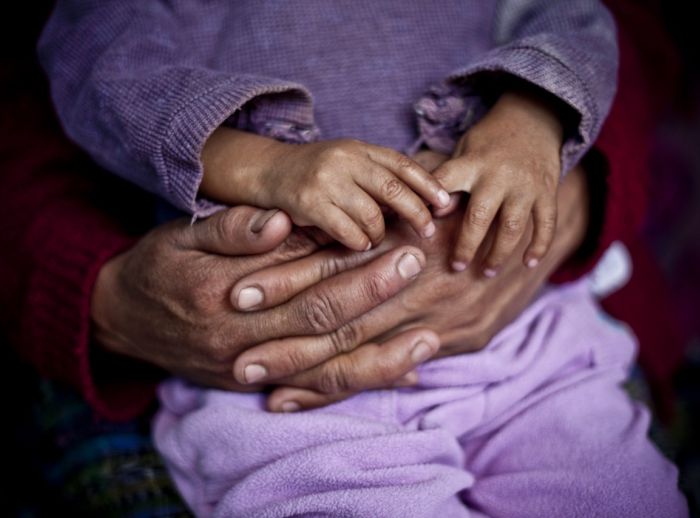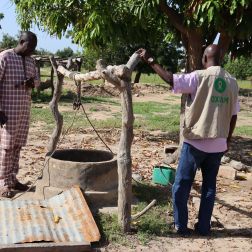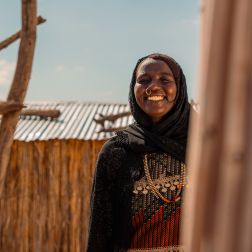- 6 mins read time
- Published: 16th April 2020
Six ways in which the Coronavirus response is impacting women’s lives
The majority of countries in Latin America (and many in the rest of the world) have taken measures to slow down the spread of the Coronavirus (COVID-19): closure of schools, universities and offices, “home-based work” for some privileged sectors, reduction or suspension of public transport, closing of borders, etc.
We are facing a health crisis that not only highlights the failure of austerity policies and hyper-globalized neoliberal economies; it also exacerbates the great inequalities and injustices that fall fundamentally on the shoulders of women. First, because they are the main caregivers of our societies: through unpaid, unrecognized, undervalued work, and second, because women are usually more vulnerable to the impact of, mostly due to the prevalent conditions such as: sexist and gender-based violence, forced migration, climate crisis, informality, precarious jobs, overload of care work, etc.

1) The heavy and unequal responsibility of care work
Oxfam emphasizes in the Time to Care report published in January 2020, that the heavy and unequal responsibility of care work placed on women perpetuates both economic inequalities and gender inequality. Faced with the closure of schools and services, time poverty will increase enormously, with paid work and unpaid work adding up to extremely long days. The few privileged ones who will not be fired and will be able to work from home will have to do it with the frying pan and the broom in hand, while still ensuring a minimum of recreation at home.
The Coronavirus is also making the centrality of care visible and reaffirming the fundamental of intersectional, gender-justice and multidimensional analyzes and responses.
2) Women at the forefront of the Coronavirus
Let’s start with the workers who are immediately on the front line of the response to the virus, the teachers, the nurses, those who care for the sick at home. In countries like Mexico, women represent 78% of the health and education sector (INEGI, 2012). Most of these women do not have the labor or health benefits to cope with a pandemic of this scale, however, they have been the first to respond.
3) In isolation time, gender based violence increases
The coronavirus is leading to social isolation, job and wage insecurities. Evidence shows that when social stress increases, so do cases of violence against women. As this has been demonstrated repeatedly, home is not a safe place for women and the institutional framework focused on addressing the crisis is neglecting other vital areas of women’s rights.
Furthermore, social isolation can make it difficult for women to leave abusive relationships, dramatically reduce the possibility of reporting violence, cuts them off from community support networks and greatly reduces the already scarce attention to victims’ services. In times of crisis, sexual and reproductive health services are being suspended, because in addition to being some of the most under-funded services, they are being de-prioritized even more during this emergency.

4) Women in the informal sector (the majority are women) will suffer from lack of customers
According to UN Women, 54% of women in Latin America depend on the informal sector as their only source of income. We see them every day in the markets, in the streets or in the fields, earning “the day” as they say. What measures are governments taking to secure their income in the absence of customers, when they do not even have the capacity to save money, never mind prepare for or even become ill with the Coronavirus? Do governments really believe they will be able to stay at home?
5) Millions of women will not be able to abide by the basic measures to prevent the Coronavirus
According to the International Labor Organization (ILO), in Latin America there are more than 14 million women who work for a family. Like other human rights organizations, they point out that paid domestic work is one of the lowest-quality occupations: long working hours, low wages, low social security coverage and a high level of non-compliance with labor standards. How many of the preventive measures could these women abide by? Staying home is not an option because they would automatically lose their only source of income.
In Central America alone, 263,000 textile workers live exploited in the “free zones” or maquilas. They represent 58% of the total workforce in the sector (Oxfam, 2015). In Honduras, among the workers’ time saving strategies are: not getting up from their post, arriving before the start time of the shift to get ahead, not speaking with their colleagues, reducing their lunch breaks, not drinking water to avoid going to the bathroom and thus be able to meet productivity goals. How many of the preventive measures could these women abide by? Even frequent hand washing would be out of the question when frequent use of the restrooms at these companies may result in a note going on their record.
6) Women and children fleeing violence are trapped at borders
In October 2018, the caravans of Central American migrants to the United States intensified. A report by the Central American Women’s Fund (FCAM) indicates that the common variable among women, girls, and adolescents who are forced to migrate is the high levels of violence they experience. The big question is: what implications do the measures taken by governments have on forced migration? It seems that the Coronavirus became the perfect excuse to close borders, apply extreme measures and violate human rights when the world isn’t watching.
Meanwhile, what other options do these women and their families have to face this public health crisis that comes in addition to other crises they have been facing for so many years?
The burden of women’s domestic and care work is a structural factor of gender inequality that greatly restricts women’s chances of having their own income, access to social protection and to participate fully in politics and society.
Stakeholders from civil society, governments and the private sector must place domestic and care work as a central element in the gender equality agenda. We urgently need governments to implement policies, allocate budgets and deploy efforts for the advancement of women’s rights.




